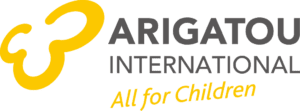
The Role of Education and the Contribution of Faith Communities, Part I.
Addis Ababa, Ethiopia.
It is a personal routine that whenever I travel out of the capital city Addis Ababa (Ethiopia) I make a point of visiting the Baha’i friends and enjoying listening to their personal and communal spiritual journeys. This past month I have been to Jimma University for work-related purpose and, as usual, in the evening I made a call to a young Baha’i whom I know is studying in the University.
When this young man arrived he came with another young Baha’i friend named Bilisa. He (Bilisa) is just finishing his third year in the Department of Economics and is about to start writing his senior year essay. Quickly, I realized that we have never met before but, somehow, his face looked familiar. I started to inquire about the name and address of his family. As soon as he mentioned the words Ahmed and Woisso I almost jumped out of my chair exclaiming ‘O my God! This is amazing! I can’t believe this!’ How does time fly?’. I gasped all the remarks that can vent my appreciation of the moment I found myself in. Finding the son of Ahmad the Villager in a university studying Economics is almost short of a miracle because of the story I am going to tell you in a moment. But awakening to the fact that some seeds sown two decades ago have started to yield the best of their fruits is heart-warming and confirming. It is one more evidence that as long as we try and persist on the path of good deeds victory is here sooner than we think.
‘Finding the son of Ahmad the Villager in a university studying Economics is almost short of a miracle…’

Woisso is a really small village past a small town called Adami Tulu 170km South of Addis Ababa. One has to drive on a bumpy and dusty road or walk about 40 minutes off the main road to reach this small village sparsely populated with nothing else but acacia trees. It is an arid region with apparent water shortage and the communities have to struggle year after year to maintain their settlement. In the 1990s there was no any formal school in the area and children just roam on the field herding their cattle. Many of these children come from close family ties as polygamy was practiced in the area. Parents were so poor that they couldn’t afford sending their kids to the nearby town schools. Besides raising cattle, the community grows corn and white beans just for home consumption and some extra income. Adult men don’t have the culture of saving the little money accrued from selling corns and white beans because it is spent on alcohol and trivial matters. Women have to struggle more and more to feed the family with the meager resource they are left with.
It is in this situation that a friend introduced the Baha’i Faith to the community. Most community members believed in the teachings of the Faith and started the long journey of transforming their lives according to these teachings. The Baha’i Faith clearly states that ‘human social economic development fundamentally means a growth process which enables people and societies to realize their full potential. The strong Baha’i emphasis on self-realization and its expression through service to others makes cooperation a necessary channel. In the Baha’i view of such cooperation and popular participation should be a process whereby local people take initiatives – and make organizational efforts – to increase their capacity to implement and control resources and activities’.
Based on these principles and repeated consultations, the local community and the Baha’i national development institute together decided to start a community banking where communal worship (spiritual reflections), principles of microfinancing and saving for community development merge together.
‘Women have to struggle more and more to feed the family with the meager resource they are left with’
Each week the community members come together to save whatever they have and also to contribute to their local development fund what they can afford. While they meet for saving, borrowing and repaying purpose they have communal prayers and readings from the holy writings. It is, however, quickly realized that without basic literacy they can’t run the community banking. They must be able to read and write so that they can personally record their saving on their passbooks and track their financial dealings. It is at that point we started to explore some innovative adult literacy methods to equip the community with the capacity of reading and writing. The Baha’i educators among us knew that the existing traditional literacy methods are slow and boring and, as a result, don’t empower the community as much as needed. The educators, therefore, started to explore if there is another international experience that can be adapted to the Ethiopian/Woisso context.
Part Two of this blog follows…here
Dr. Solomon Belay Faris (PhD) is the Representative on Peace Education, The Africa Office of Baha’i International Community (AO BIC) based in Addis Ababa, Ethiopia. He draws upon his extensive experience to show, through this story, how socio-economic development of a faith community contributed towards fighting child poverty.
Dr. Solomon can be reached through The Africa Office of Baha’i International Community, a partner of End Child Poverty – Arigatou International.


